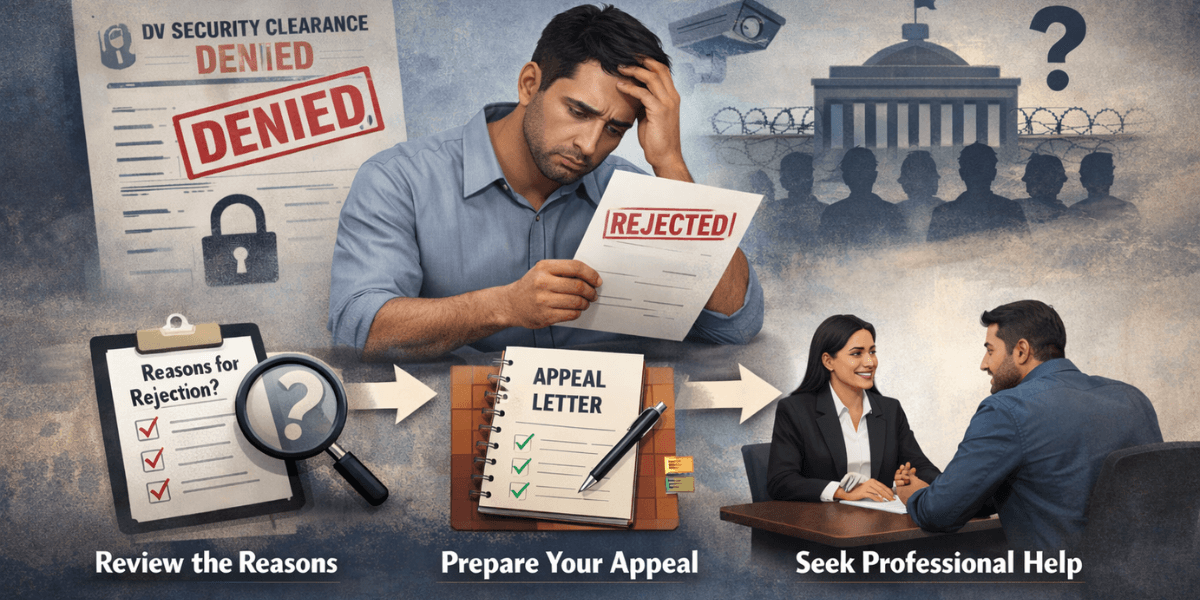In the UK, certain professions demand trust, confidentiality, and verified reliability. Security vetting guarantees that sensitive information remains protected, decreasing the risk of breaches that could compromise national security. Among the recognised security clearance levels in the UK, SC (Security Check) and DV (Developed Vetting) are the most common for government, defence, intelligence, and contractor roles. SC clearance allows controlled access to confidential information and occasional exposure to highly confidential data, while DV clearance represents the highest level, providing frequent, unsupervised access to highly classified assets.
This blog explores SC and DV clearance requirements, processes, and access privileges, offering clarity for professionals navigating these crucial vetting levels.
What Is SC Clearance?
Definition and Purpose
SC clearance is a formal UK security vetting process designed to protect classified data. It allows individuals to work with sensitive official material and, in limited cases, observe highly restricted information under supervision. Most government, defence, IT, and analytical roles require this clearance. It confirms candidates are reliable, with a stable personal and professional background suitable for sensitive responsibilities.
Eligibility and Requirements
Applicants for SC clearance must demonstrate a clear history of integrity. This typically involves a BPSS employment history check, criminal record screening, and verification of personal references. Candidates are expected to have resided in the UK for at least three of the last five years, though exceptions exist in some cases. The process focuses on honesty, stability, and reliability rather than invasive scrutiny.
Access and Limitations
SC clearance provides controlled access to sensitive government information. It is appropriate for roles where exposure to highly restricted material is limited and closely managed. Professionals in project management, IT security, defence support, or operational roles often rely on SC clearance to perform their duties securely. Positions requiring frequent and independent handling of the most sensitive material fall outside the scope of SC clearance and instead require DV clearance.
What Is DV Clearance?
Definition and Purpose
DV clearance represents the highest tier of UK security vetting. It permits frequent and independent handling of the most sensitive information. Enhanced or developed vetting guarantees that only individuals with exceptional trustworthiness are entrusted with national security responsibilities. Roles in intelligence, senior defence positions, and strategic government operations often require this clearance.
Eligibility and Requirements
DV clearance requires rigorous screening. Candidates must have lived in the UK for 7 out of the last 10 years. The process includes comprehensive background checks, financial assessments, criminal record analysis, and extensive interviews with references and associates. The investigation delves deeper than SC clearance, assessing loyalty, reliability, and vulnerability to coercion.
Access and Benefits
Individuals with DV clearance in the UK gain access to highly sensitive information without supervision. The clearance fosters confidence for organisations relying on individuals to handle critical national security operations independently. It certifies that only candidates with proven reliability and integrity participate in decision-making involving sensitive intelligence.
SC vs DV Clearance: Key Differences
Depth of Background Checks
The level of scrutiny distinguishes SC from DV clearance. SC clearance involves a moderate investigation, including a BPSS employment history check, criminal record self-declaration (BPSS does not include a DBS check), and verification of personal references. The focus has been on reliability and honesty over the past few years, making it suitable for most government and defence roles. DV clearance, however, demands a far more detailed assessment. Investigators examine financial history, personal relationships, and professional conduct. Candidates undergo in-depth interviews with colleagues, associates, and sometimes family members. The process ensures that only individuals of exceptional trustworthiness gain access to highly sensitive information.
Access to Sensitive Information
SC clearance supports roles that require handling classified government material with appropriate oversight. It is ideal for roles in IT security, defence projects, analysts, or project management, where staff handle confidential information but rarely need unsupervised access to critical secrets. DV clearance offers the highest access level, allowing individuals to work with restricted data independently. This clearance is vital for senior defence positions, intelligence officers, and strategic government roles where operational decisions rely on absolute trust and discretion.
Residency and Eligibility Requirements
SC clearance requires applicants to have resided in the UK for at least three of the last five years. It also demands stable employment and a personal history, along with employer sponsorship. DV clearance is stricter, asking for seven out of the last ten years of UK residency. The candidate must demonstrate long-term reliability, stable finances, and personal conduct free of risks that could compromise national security.
Processing Time and Role Suitability
The approval process for SC clearance usually takes a few weeks to several months, depending on background complexity and documentation. DV clearance takes longer, often several months, because of extensive verification and multiple interviews. SC clearance is suitable for a wide range of government, defence, and project management roles, while DV clearance targets highly sensitive positions that require frequent, unsupervised access to sensitive information. Understanding these distinctions helps candidates and employers align clearance levels with the responsibilities of specific roles.
How to Apply for SC and DV Clearance
Securing either clearance begins with employer sponsorship. Candidates must provide detailed personal information, including employment history, financial records, and references.
SC Clearance Application:
- Complete BPSS employment history check.
- Submit personal details and employment references.
- Undergo criminal and financial background screening.
- Wait for approval, typically for a few weeks to several months.
DV Clearance Application:
- Employer initiates sponsorship.
- Provide a full UK residency record for the past 7 of the last 10 years.
- Submit detailed personal, financial, and professional information.
- Participate in in-depth interviews with colleagues and associates.
- Clearance may take several months due to extensive verification.
The Background Checker supports UK employers with accurate, compliant, and dependable screening solutions tailored to regulated and security-sensitive roles. Many organisations choose professional background check companies, like ours, to strengthen hiring decisions and reduce risk during recruitment.
Common Misconceptions About SC and DV Clearance
Many professionals assume DV clearance is only necessary for spies. In reality, it extends to senior roles in intelligence, defence, and government, where independent access to sensitive information is critical. Others believe SC clearance is insufficient for security work, yet it remains adequate for most government and defence positions.
Both clearance types require diligence, honesty, and a stable personal history. High-level clearance does not guarantee privilege; it reflects trustworthiness and the ability to safeguard national security interests.
Conclusion
Understanding the difference between SC and DV clearance ensures professionals can assess the level of vetting required for their roles. SC clearance provides controlled access to SECRET information, suitable for many government and defence positions, while DV clearance applies to roles requiring the highest level of trust and independence.
Navigating security clearance in the UK demands preparation, integrity, and awareness of eligibility criteria. Professionals pursuing careers in national security or government projects should familiarise themselves with DV or SC clearance requirements, and enhanced developed vetting protocols.
Start your verification with confidence by consulting The Background Checker to initiate a BPSS employment history check that meets both employer and national security expectations.































